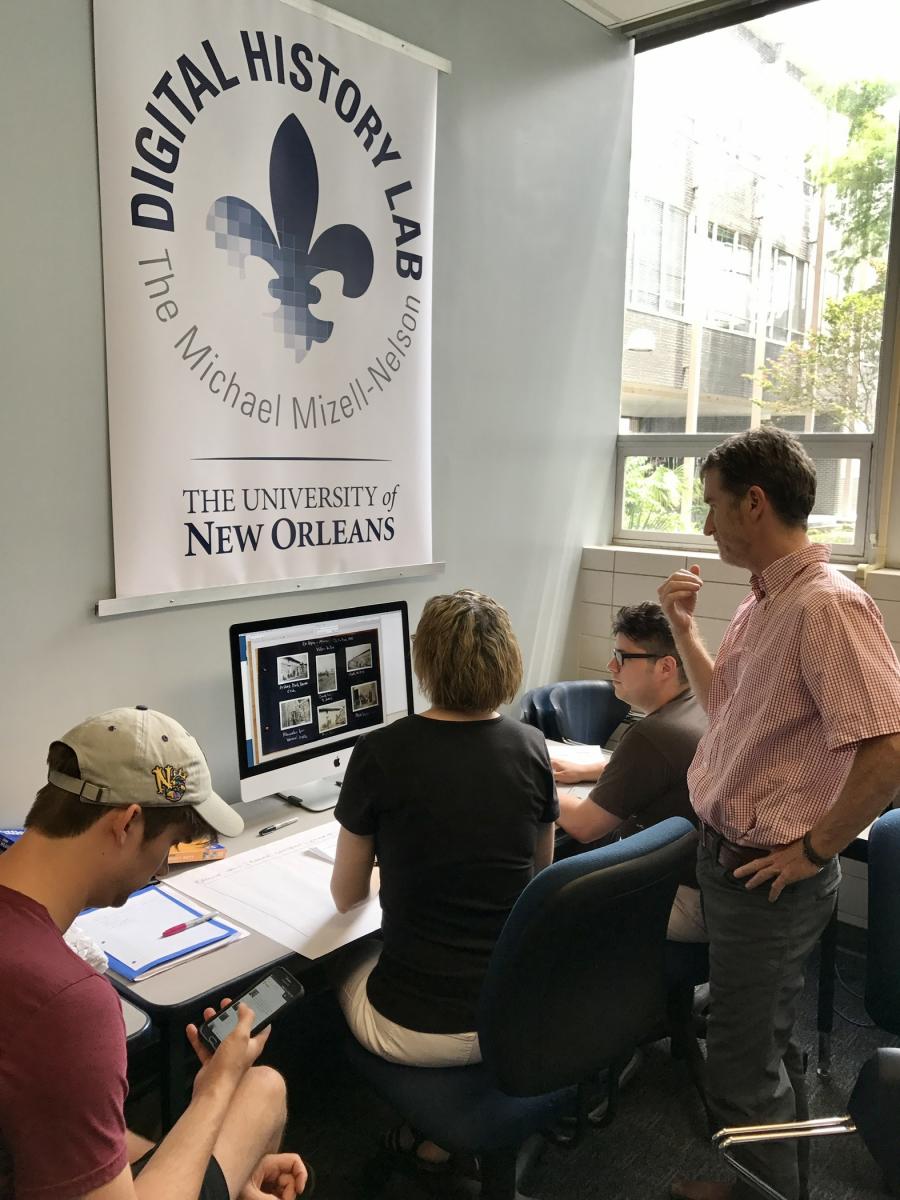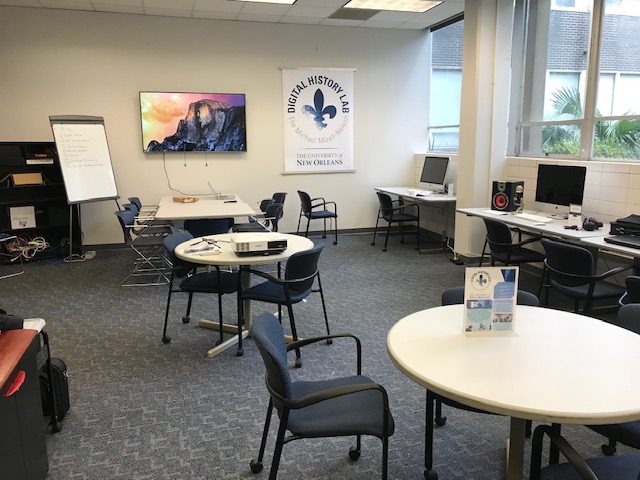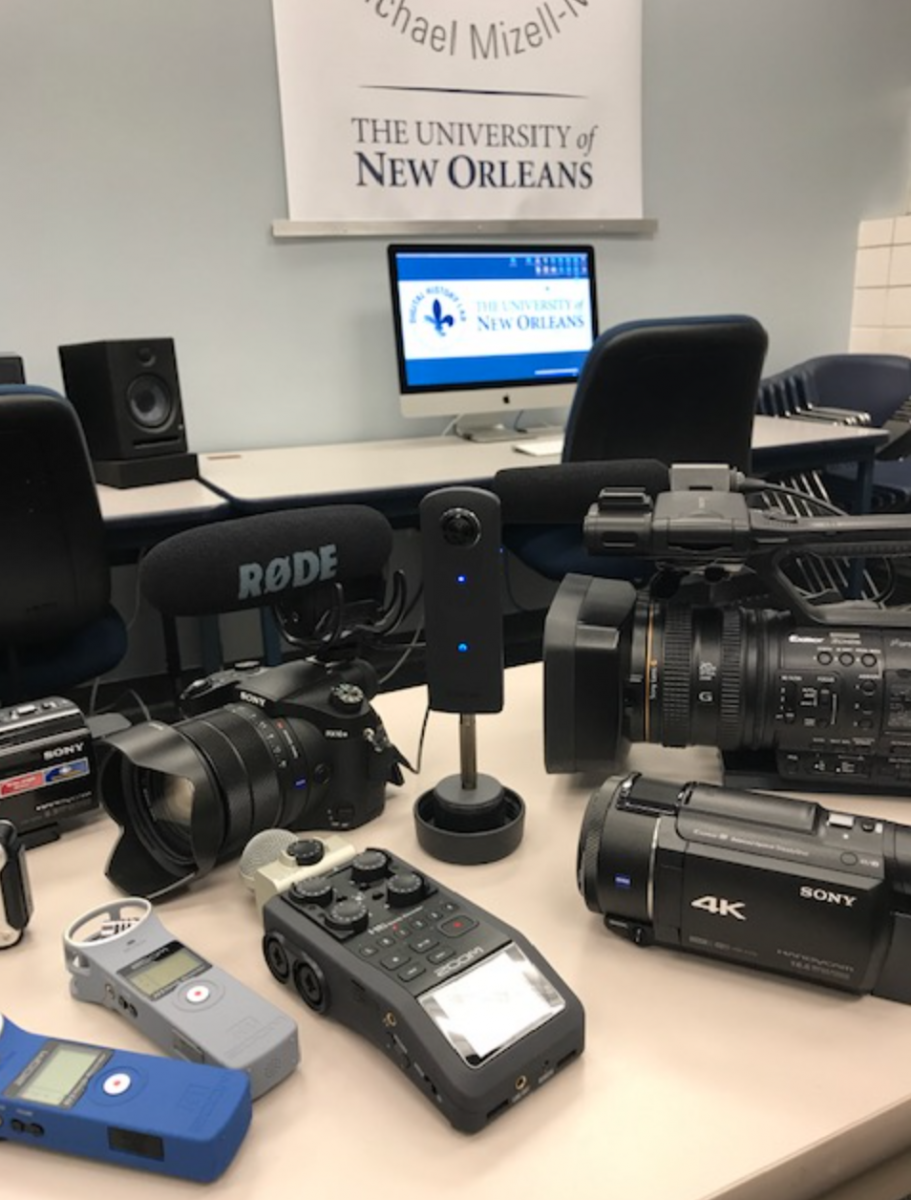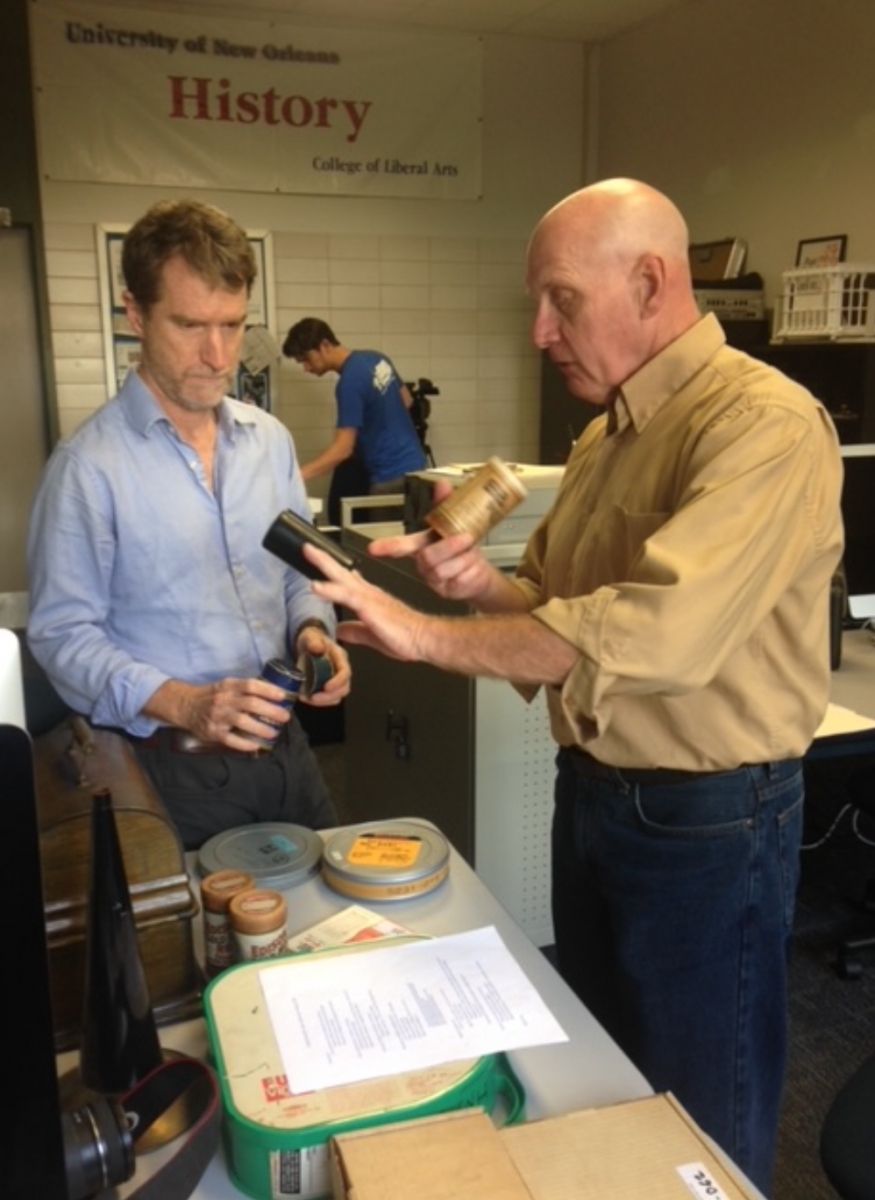Lab Facility and Resources
The Michael Mizell-Nelson Digital History Lab provides numerous resources to support a variety of Digital History projects. From podcasting and documentary filmmaking to website construction to microfilm scanning, the DHL has equipment that is available to History students to use on site and in the field.
Collaborative Digital Lab Environment
 Typical computer lab environments are geared toward top-down learning styles, with an instructor at the head of the classroom leading students organized by rows through a task or lesson. The DHL focuses instead on promoting collaborative work, with technology that allows small teams at the six high-powered iMac workstations to share their work via a single projected screen visible to all. An integrated video conferencing station is built around the smaller-scale "huddle room" approach, with room for up to eight participants. (The History Conference Room next door offers an advanced large-format touchscreen video conferencing equipment suited for groups of up to twenty people.)
Typical computer lab environments are geared toward top-down learning styles, with an instructor at the head of the classroom leading students organized by rows through a task or lesson. The DHL focuses instead on promoting collaborative work, with technology that allows small teams at the six high-powered iMac workstations to share their work via a single projected screen visible to all. An integrated video conferencing station is built around the smaller-scale "huddle room" approach, with room for up to eight participants. (The History Conference Room next door offers an advanced large-format touchscreen video conferencing equipment suited for groups of up to twenty people.)
Overall, non-hierarchical lab design, access and rules seek to promote the creation of an environment that fosters experimentation, creativity and empowerment, with a goal of helping students and faculty to acquire new skillsets that will help them with their projects and in their careers.
Audio-Visual Recording Equipment
The Digital History Lab's documentary mission follows in a tradition established by its namesake. Mizell-Nelson himself was a documentary filmmaker, having researched and produced a local history documentary film on the New Orleans streetcar system. Entitled "Streetcar  Stories," the film was broadcast on Louisiana public television and distributed nationally, and sought to show the cultural and political significance of New Orleans' iconic streetcar.
Stories," the film was broadcast on Louisiana public television and distributed nationally, and sought to show the cultural and political significance of New Orleans' iconic streetcar.
Through the DHL, history students have access to broadcast-quality recording equipment, including digital cameras and audio recorders, lighting, microphones, tripods and more. Kits have been built so as to be suitable for students at all skill levels and in a variety of classroom and research environments. Two dedicated workstations allow access to powerful audio and video editing capabilities and the Adobe Creative Cloud suite. Students also have access to a host of digital outlets to make their DHL-supported projects available to the public, including Omeka and Vimeo.

Legacy Media Conversion
In both the DHL itself and in an associated annex, stations have been created to help assist with the digital conversion of analog media -- such as videotapes, audio cassettes, reel-to-reel tapes, photography and other paper archival materials -- into more accessible and easily distributable digital formats. A top-of-the-line high-speed microfilm scanner allows students to access and manipulate the deep archives compiled by libraries and research centers within our own Lab environment.

